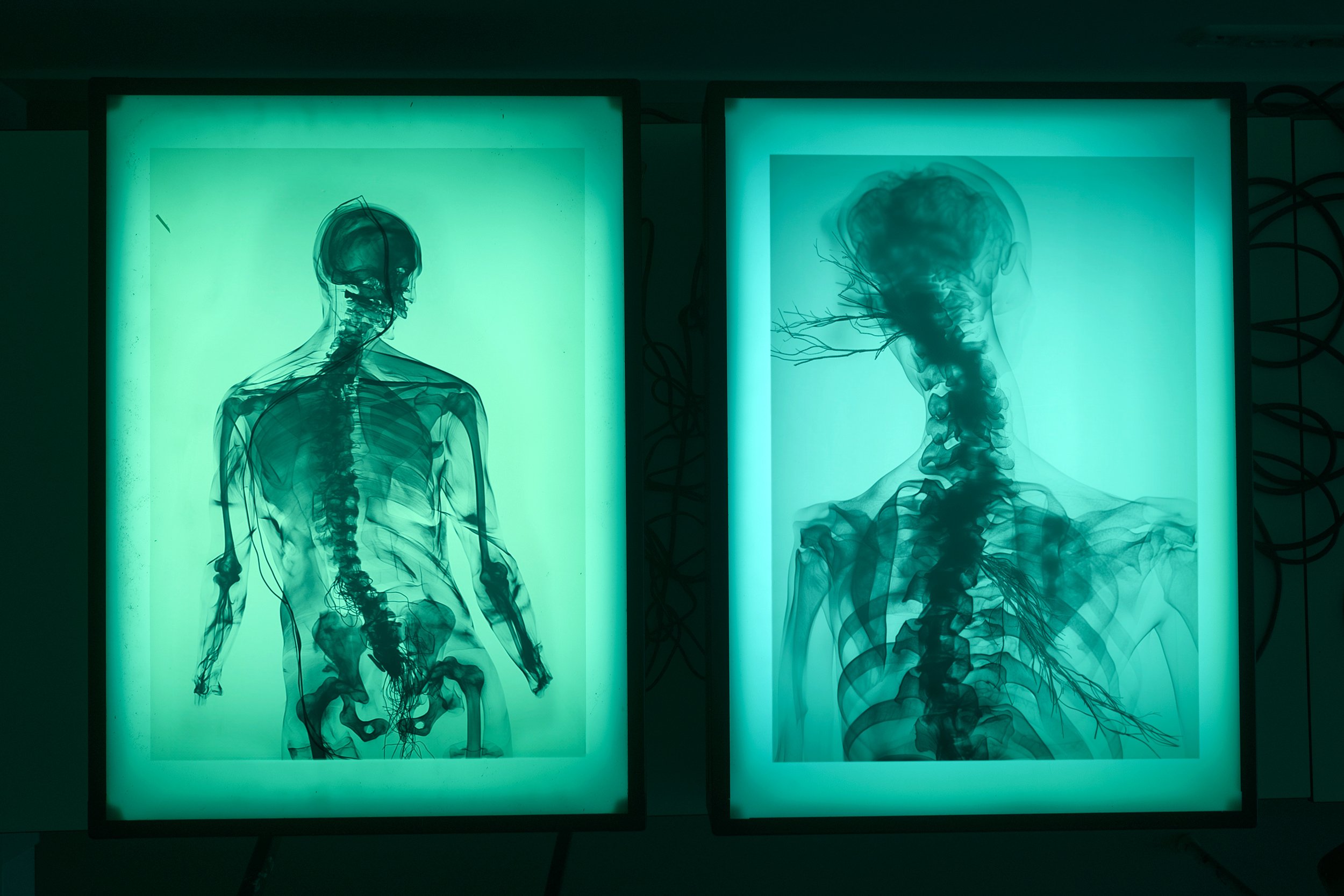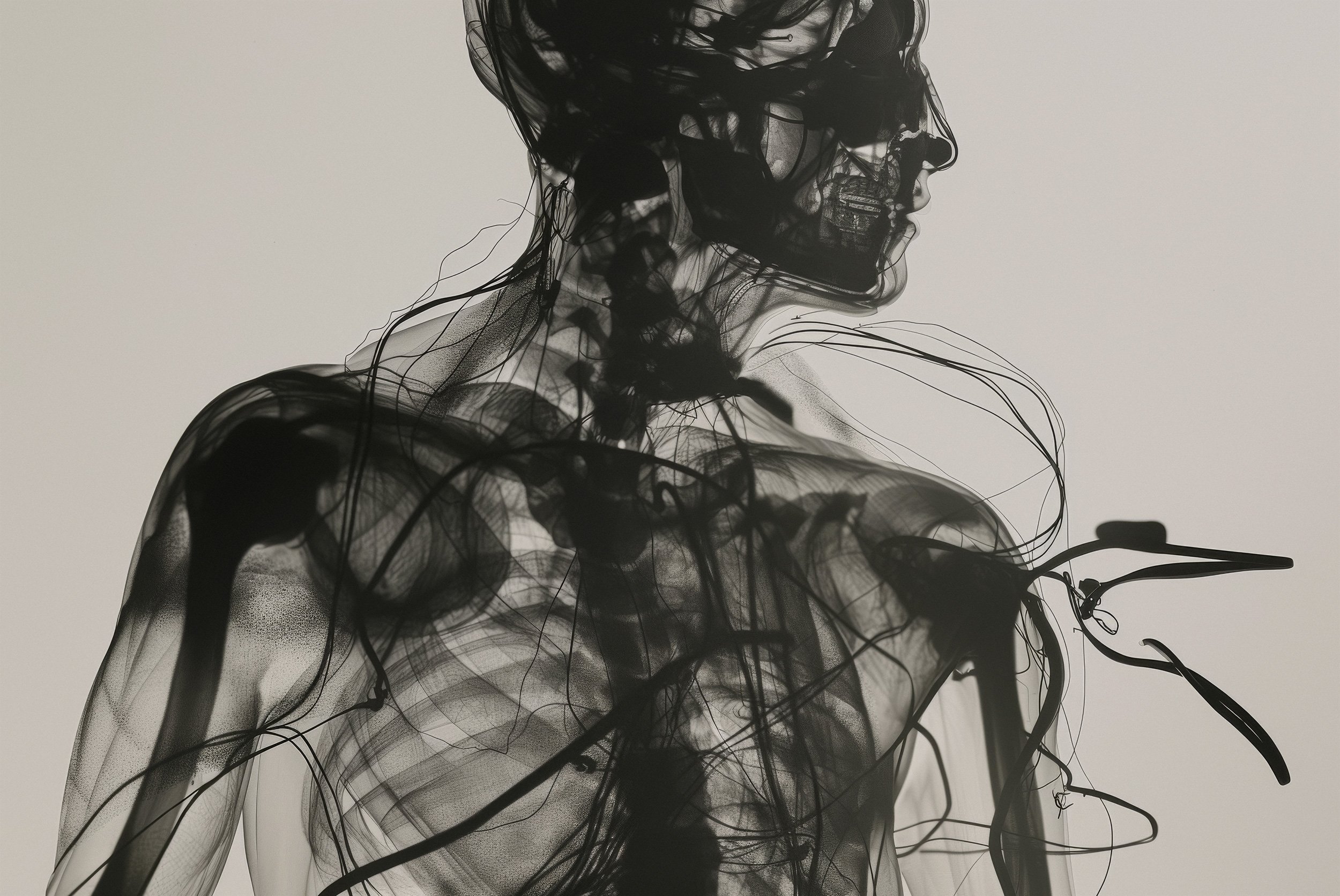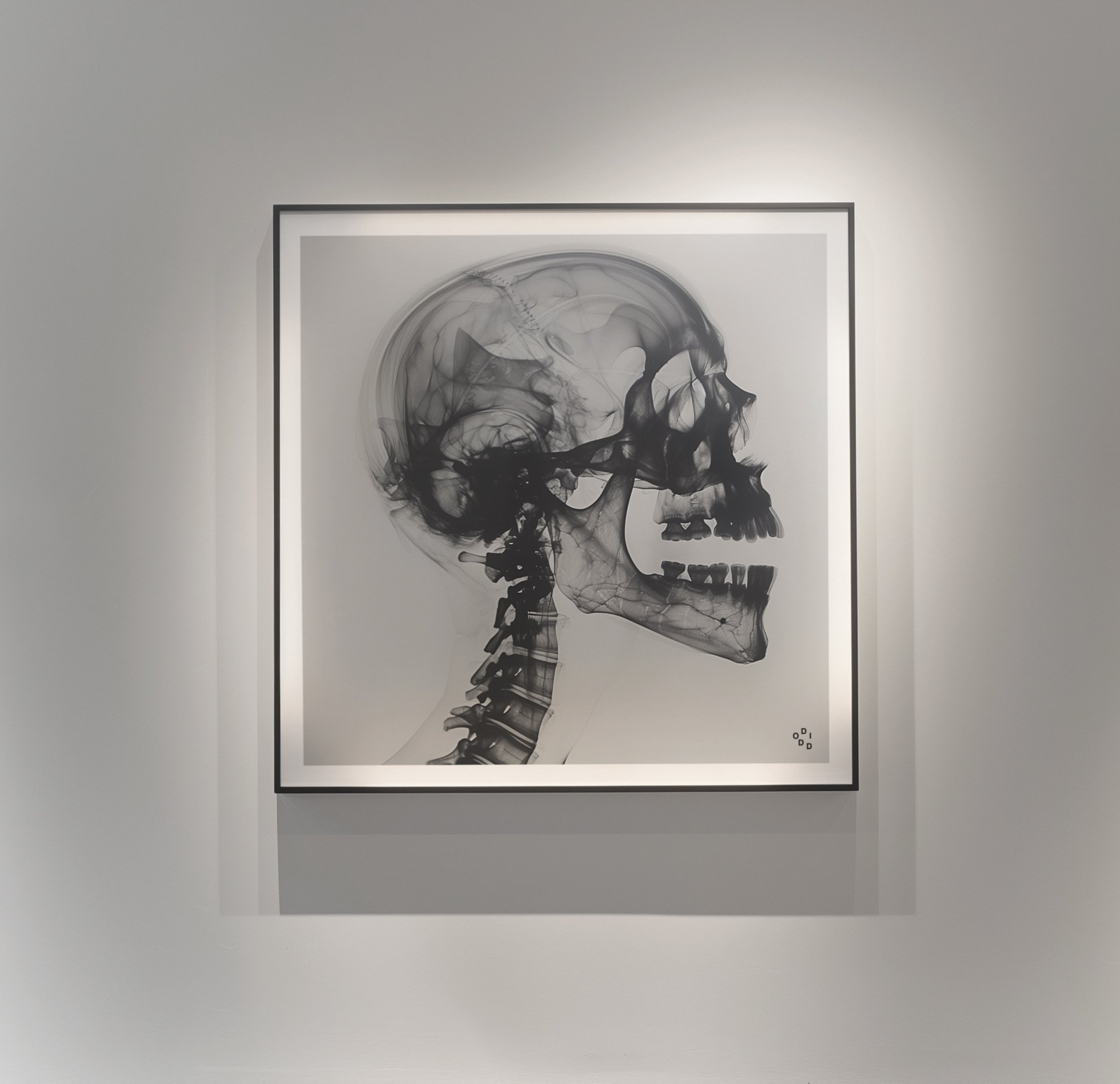Description: Diptych anatomical study exploring our complex relationship with technology. Mixed media: Digital painting, AI, and transfer collage on acetate and art paper.
For the Love of Technology
The integration of technology into every aspect of our daily lives has given rise to a new reality — one of extreme dependence. Bit by bit, we have surrendered our autonomy in favour of convenience and connectivity. Now, humanity finds itself irreversibly entangled within its own creation.
We have embraced the soulless efficiency of algorithms and circuits that are fundamentally altering the essence of what it means to be human. As our reliance on technology grows, our natural abilities diminish, further reinforcing our dependence.
This raises the question: Does technology serve humanity, or have we, in turn, become its servants? Is it conceivable that we are already living in a paradox where freedom and enslavement have become one seamless and inescapable reality?
‘For the love of Technology’ prompts reflection on the evolving nature of our relationship with technology. What if technology isn’t just an extension of humanity, but instead, has become a force that shapes, defines, and potentially subjugates it? If so, what kind of relationship does technology seek with us?
Works on ACETATE
ELLUL (acetate)
Jacques Ellul's thinking, as articulated in his seminal work "The Technological Society" (1954), emphasises the pervasive and autonomous nature of technology in modern life. Ellul argues that technology has become a self-perpetuating force that shapes all aspects of society, including politics, economics, and culture. He introduces the concept of "technique”, which he defines as the totality of methods rationally arrived at and having absolute efficiency in every field of human activity.
Ellul believes that the pursuit of efficiency and technical rationality overrides ethical and human considerations, leading to a society where human values are subordinated to technological imperatives. His critique is not rooted in a rejection of technology itself but in its unchecked growth and the way it fundamentally restructures social and individual life. Eventually, creating a technocratic society that prioritises technical efficiency over human needs.
“Modern technology has become a total phenomenon for civilization, the defining force of a new social order in which efficiency is no longer an option but a necessity imposed on all human activity.”
studio; image creation, preparation, transfer to acetate, inspection of film
“X-rays expose what is hidden inside our bodies and reveal layers invisible to the naked eye. They show our fundamental structure, much like how extreme circumstances expose the core of human nature.”
Works on PAPER
Kaczynski (Paper)
In contrast, Theodore Kaczynski's "Industrial Society and Its Future" presents a more radical and confrontational stance against modern technology. Kaczynski's manifesto asserts that industrial and technological advancements have created an oppressive system that dehumanises individuals and disrupts their fundamental need for autonomy and meaningful engagement. Unlike Ellul, who focuses on the philosophical and sociological implications of technology, Kaczynski calls for a revolutionary overthrow of the industrial-technological system, advocating for a return to a simpler, pre-industrial way of life.
He views technological society as inherently destructive and believes that only through radical action can humanity reclaim its autonomy and prevent further environmental and social decay. While both Ellul and Kaczynski critique the dominance of technology, Ellul offers a more analytical and descriptive account, whereas Kaczynski provides a prescriptive and extreme solution.
EXHIBITION
Exhibition - Modular light-box installation
Read more
Wiki - Jacques Ellul, Theodore Kaczynski
Book - ‘The Technological Society’, Jacques Ellul
Documentary - ‘The Betrayal by Technology’, Jacques Ellul
Podcast - ‘The Philosophy of Jacques Ellul: Part 1 Technology and Propaganda’ J. Rollison
Podcast - ‘Jacques Ellul vs. Theodore Kaczynski’, Sean Fleming (PHD)
Article - ‘Jacques Ellul and Technology’s Trade-off’, David W. Gill
Manifesto - ‘Industrial Society and its Future’, Theodore Kaczynski
Podcast - ‘Ted Lewis on Technology Society’, International Director Jacques Ellul foundation
Article - ‘The Unabomber and the origins of anti-tech radicalism’, Sean Fleming (PHD)





























































